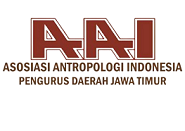Analysis of the impact of insecurity on youth unemployment in Nigeria (1990-2020)
Downloads
Youth unemployment is a very important socioeconomic problem in Nigeria, which has gone bad in recent years. Therefore, using the ordinary least square estimation technique (OLS), this research examines the impact of insecurity on youth unemployment in Nigeria from 1990 to 2020. The study focuses on the relationship between the dependent variable, unemployment (Unemp), and two independent variables, the National Terrorism Index (Ntix) and Crime Rate (Crat). The results reveal that Ntix has a positive and statistically significant effect on Unemp. Specifically, a unit increase in Ntix leads to a 0.000827 rise in unemployment. Additionally, Nigerian Crat demonstrates a significant and positive influence on Unemp, with an increase in Crat resulting in a 0.005653 increase in unemployment. Given that heightened insecurity directly contributes to unemployment, the study proposes several policy recommendations. Firstly, the government should consider reducing interest rates in commercial banks to enhance the availability of loans for small business owners, enabling them to hire more employees. Furthermore, addressing corruption in both public and private sectors, combating kidnappings, and establishing additional skill acquisition centers are crucial measures to tackle the issue of insecurity and promote employment opportunities.
Abdulazeez, H., Magaji, S., & Musa, I. (2022). Analysis of infrastructural challenges, cybercrime, and the cashless policy in Nigeria. Advanced Research on Information Systems Security, 2(1), 13–27.
Achumba, I. C., Ighomereho, O. S., & Akpor-Robaro, M. O. M. (2013). Security challenges in Nigeria and the implications for business activities and sustainable development. Journal of Economics and Sustainable Development, 4(2).
Adamu, A. (2005). True Federalism in 21st Century Nigeria. Retrieved March 24, 2023, from A Lecture Delivered at the University of Jos Alumni Association website: http://www.abdullahiadamu.net/speeches/10628142731.html
Adebayo, A. A. (2013). Youths unemployment and crime in Nigeria: A nexus and implications for national development. International Journal of Sociology and Anthropology, 5(8), 350–357. https://doi.org/10.5897/IJSA2013.0452
Adesina, O. S. (2013). Unemployment and security challenges in Nigeria. International Journal of Humanities and Social Science, 3(7), 146–156.
Ajibola, C. F., Malomo, S. A., Fagbemi, T. N., & Aluko, R. E. (2016). Polypeptide composition and functional properties of African yam bean seed (Sphenostylis stenocarpa) albumin, globulin and protein concentrate. Food Hydrocolloids, 56, 189–200. https://doi.org/10.1016/j.foodhyd.2015.12.013
Ali, A. D. (2013). Security and economic development in Nigeria since 1960. Kuwait Chapter of Arabian Journal of Business and Management Review, 2(6), 1–7. https://doi.org/10.12816/0001202
Ali, H., Qingshi, W., Memon, Z. A., Baz, K., & Ali, I. (2017). How different terrorist attacks affect stock returns evidence from Pakistan stock exchange. International Research Journal of Finance and Economics, 163, 103–120.
Awogbenle, A. C., & Iwuamadi, K. C. (2010). Youth unemployment: Entrepreneurship development programme as an intervention mechanism. African Journal of Business Management, 4(6), 831–835.
Central Bank of Nigeria. (2020). Annual Statistical Bulletin-Central Bank of Nigeria. Retrieved from https://www.cbn.gov.ng/documents/statbulletin.asp
Coleman, W. (1985). Wicksell on Technical Change and Real Wages. History of Political Economy, 17(3), 355–366. https://doi.org/10.1215/00182702-17-3-355
Dike, M. C. (2010). Proximate, phytochemical and nutrient compositions of some fruits, seeds and leaves of some plant species at Umudike, Nigeria. Journal of Agricultural and Biological Science, 5(1), 7–16.
Gujarati, D. N. (2003). Basic Econometrics (4th Editio). New York: McGraw-Hill.
Held, D., & McGrew, A. (1998). The end of the world order? Globalization and the prospects for world order. Review of International Studies, 24(5), 219–243. https://doi.org/https://doi.org/10.1017/S0260210598002198
International Labour Organization. (2017). Report 1, General Report. Geneva.
International Labour Organization. (2022). ILOSTAT Database 2020. Retrieved from https://data.worldbank.org/
Jacob, D. G., Goshi, M. S., & Jonathan, I. (2019). Curbing youth unemployment and insecurity in Nigeria: Vocation and technical education imperative. Journal of Humanities and Social Science, 24(2), 28–33.
Krahmann, E. (2003). Conceptualizing security governance. Cooperation and Conflict, 38(1), 5–26. https://doi.org/10.1177/0010836703038001001
Magaji, S., & Adamu, M. A. (2010). Youth Unemployment in Nigeria since Independence. Nigeria at Fifty: Issues and Challenges in Governance, 247–258. University of Abuja Conference.
Magaji, S., Jafar, Y., & Kari, A. G. U. (2020). Youth Unemployment and its Security Implications in Northeastern Nigeria. Proceedings of 3rd International Conference on Social Responsibility, Governance, Environmental Challenge and the Prospects of Sustainable Development in Nigeria, 227 – 242. University of Abuja, Faculty of Social Science.
Magaji, S., Musa, I., & Salisu, A. (2022). Impact of insecurity on youth unemployment in Nigeria: Ordinary Least Square (OLS). Indian Journal of Economics and Business Management, 2(1), 4–9.
Malthus, A. M. (1798). An Essay on the Principle of Population. Oxford World's Classics reprint.
McDonald, I., & Solow, R. (1981). Wage bargaining and employment. American Economic Review, 17(5), 896–908.
Monday, J. U., Akinola, G. O., Ologbenla, P., & Aladeraji, O. K. (2015). Strategic management and firm performance: A study of selected manufacturing companies in Nigeria. European Journal of Business and Management, 7(2), 161–171.
Musa, I., & Magaji, S. (2023a). Analysis of the impact of household income on child labour in Bauchi State, Nigeria. Journal of Arid Zone Economy, 1(1), 130–141.
Musa, I., & Magaji, S. (2023b). Nexus Between Household Income and Child Labor in Northeastern Nigeria. African Journal of Social Sciences and Humanities Research, 6(3), 57–70. https://doi.org/10.52589/AJSSHR-YLWQGNJ2
Musa, I., Magaji, S., Eke, C. I., & Abdulmalik, Y. O. (2022). Poverty and it's intractability: Causes and consequences. Inclusive Society and Sustainability Studies, 2(2), 48–59.
Musa, I., Magaji, S., & Tsauni, A. M. (2022). Analysis of socio-economic determinants of child labour in North Eastern Nigeria. Inclusive Society and Sustainability Studies, 2(1), 46–58.
National Bureau of Statistics. (2020). Labour Force Statistics, 2021.
Nwanegbo, C. J., & Odigbo, J. (2013). Post independence peace building in South Sudan: Looking beyond ephemeral peace. International Journal of Social Science Tomorrow, 2(1), 1–10.
Obadan, M. I., & Odusola, A. F. (2018). Productivity and unemployment in Nigeria. SSRN Electronic Journal. https://doi.org/10.2139/ssrn.3101771
Obona, E. E., & Nweke, E. N. (2018). Curbing insecurity in Nigeria through youths employment and skills acquisition: Ebonyi State in question. African Journal of Politics and Administrative Studies, 11(1), 56–67.
Okafor, E. E. (2018). Youth unemployment and implication for stability of democracy in Nigeria. Journal of Sustainable Development in Africa, 13(1), 358–373.
Omede, A. J. (2011). Nigeria: Analyzing the security challenges of the goodluck Jonathan administration. Canadian Social Science, 7(5), 90–102. https://doi.org/10.3968/J.css.1923669720110705.220
Pigou, A. C. (1933). Theory of Unemployment. Routledge.
World Bank. (1998). World Development Report 1998/1999: Knowledge for Development.
Copyright (c) 2023 Indonesian Journal of Social Sciences

This work is licensed under a Creative Commons Attribution-NonCommercial-ShareAlike 4.0 International License.
1. The authors agree to transfer the transfer copyright of the article to the Indonesian Journal of Social Sciences effective if and when the paper is accepted for publication. The authors can download the Copyright Transfer Agreement here.
2. The legal formal aspect of journal publication accessibility refers to Creative Commons Attribution-NonCommercial-ShareAlike 4.0 International License (CC BY-NC-SA).
3. Every publication (printed/electronic) is open access for educational purposes, research, and library. Other than the aims mentioned above, the editorial board is not responsible for copyright violation.

IJSS by Unair is licensed under a Creative Commons Attribution-NonCommercial-ShareAlike 4.0 International License.




















